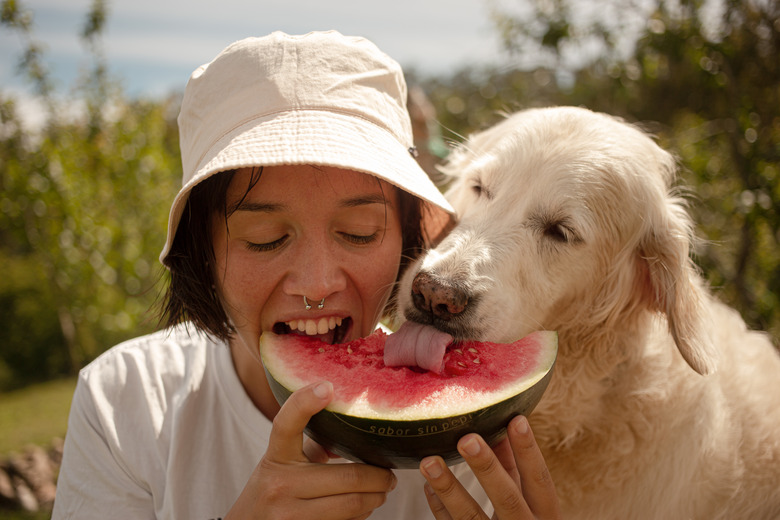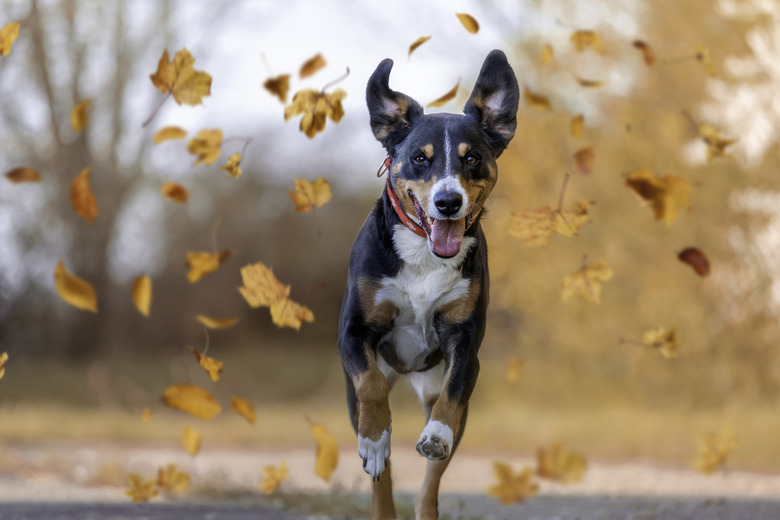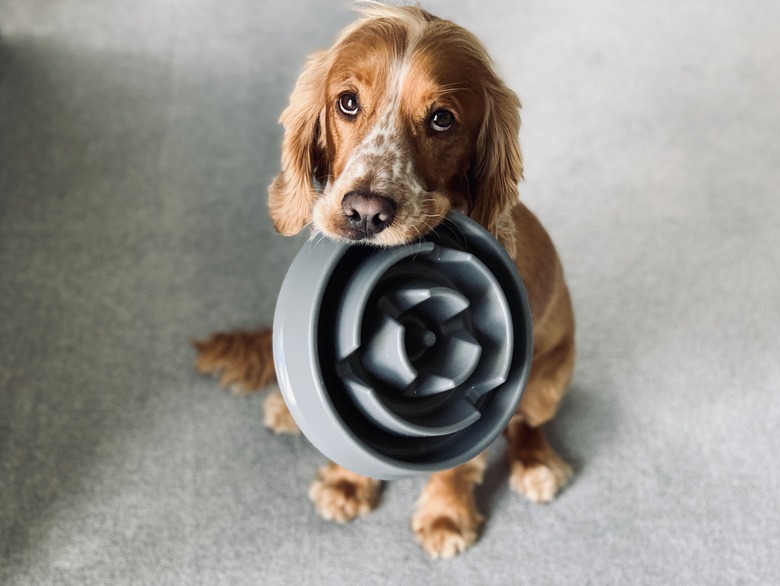How To Aid A Dog's Digestion Naturally
Dogs, like humans, have digestive issues from time to time, which may show up as vomiting, constipation, diarrhea, or unusual-looking stools. If blood is present, symptoms persist for over 48 hours, or additional symptoms are concerning, call your veterinarian for advice, but for dog digestion aids that keep their system running smoothly, chances are you have the answers at your fingertips.
Offer a bland diet for several days
Offer a bland diet for several days
Whether your dog has a virus or is regurgitating grass he chewed, after vomiting or diarrhea, it's good to follow up with bland food, like plain rice, boiled chicken, or homemade mashed potatoes. Stay away from mixes or potato flakes that come to life with liquid, as these have spices that can further upset an already irritated stomach and also contain other additives dogs don't need. Serve just a small amount first; if your dog eats it, you can give a bit more but keep the meal smaller than a normal serving.
Try pumpkin for multiple symptoms
Try pumpkin for multiple symptoms
Pumpkin is one of the best foods for dog digestion because it helps both constipation and diarrhea, and dogs usually like it. Be sure to buy canned pumpkin puree and not pumpkin pie mix, which is full of spices.
Put about 2 teaspoons of the puree into your dog's clean dish and see if he eats it. If he doesn't eat it, mix the pumpkin into a small amount of dog food. This works best with wet food, but if you're mixing it with dry kibble, let the mixture sit for about 10 minutes to soften the kibble and then stir it again and serve.
Add fibrous food slowly
Add fibrous food slowly
Fiber is an important part of a healthy diet, and foods containing fiber are among the best foods for a dog's digestive system because it regulates how quickly food moves through the digestive tract. If the dog is constipated, fiber speeds up movement; if diarrhea is the issue, fiber slows down movement.
Don't add fibrous food when your dog is ill with vomiting and/or diarrhea, though, since it is difficult to digest at first. Once the dog is feeling well again, introduce fiber slowly, giving small amounts of whole vegetables, like broccoli, carrots, or green beans. Adding too much fiber at one time often causes gas and diarrhea.
Consider other foods good for dogs' digestion
Consider other foods good for dogs' digestion
Some human food that's good for people can actually be toxic to dogs, like onions and garlic, avocados, and grapes. A lot of human food is fine for dogs to eat and also gives them vitamins, minerals, fiber, and protein.
Instead of giving table scraps, though, feed your dog vegetables that are raw or steamed whole and cut into bite-size pieces. Beans, peas, and legumes add fiber and vitamins, while edamame provides fiber and protein. Be sure to count the calories of all foods you add to your dog's diet and give her less dog food when giving her human food.
Watch for poop changes
Watch for poop changes
Besides being watery, like diarrhea, or hard pellets, indicating constipation and dehydration, a dog's stools provide information on his overall health. The color of the stool can reveal a lot about possible problems that should be further investigated.
Normal poop is chocolate brown, although some added specks of color can come from the food being eaten. Poop that is dark brown or black can indicate bleeding higher up in the intestines, while streaks of red signal lower issues, like anal cuts. Yellow can mean a liver problem, gray/greasy can indicate pancreatic issues, and green poop is a sign of possible gallbladder problems or that your dog ate an abundance of grass. Check with your vet if your dog's poop changes in color to rule out serious issues.
Always check with your veterinarian before changing your pet's diet, medication, or physical activity routines. This information is not a substitute for a vet's opinion.


